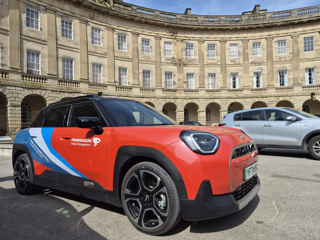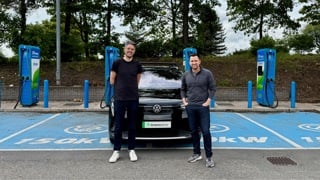Nine out of 10 drivers at a company surveyed by Leasedrive said they would be interested in sourcing a vehicle through its MyCar salary sacrifice scheme.
Leasedrive commercial director Roddy Graham was not “entirely surprised” by the result of the survey, which involved more than 1,200 employees.
“If salary sacrifice is properly explained and articulated to people, and they sit down and think about it, then to be honest it’s a bit of a no-brainer,” he said.
Salary sacrifice schemes allow employees to give up a portion of their income before tax in return for a company car.
They offer several benefits to both the employer and the employee, and work best when sacrificing salary for a low emission car, as these attract the lowest rate of benefit-in-kind (BIK) tax.
Graham added: “It opens up the prospect of buying a new car to people who normally buy a used car with old engine technology, higher emissions and higher fuel consumption.
“If an organisation is serious about the green agenda you need to get away from paying employees to drive seven-year-old cars.”
Lower CO2 emissions than contract hire schemes
Tusker, which launched its salary sacrifice product SS4C three years ago, says employees using its scheme have to date selected cars with an average CO2 of 113g/km.
This compares with those on Tusker’s main contract hire fleet which have an average CO2 of 139.5g/km. One major client has even seen the carbon emissions on its fleet fall from an average of 155g/km to 112g/km on all new cars, thanks to salary sacrifice.
David Hosking, chief executive at Tusker, said: “Drivers are now selecting green cars through the scheme which is driving average carbon emissions down to an all-time low.”
A recent survey undertaken by Tusker of 1,000 drivers who had recently ordered a new car through SS4C showed that environmental concerns and fuel saving were priorities in their decision-making process.
This was further supported by research at one of Tusker’s largest SS4C customers. The average CO2 of the existing vehicles on the customer fleet was 156g/km versus an average CO2 of 112g/km for its new vehicles ordered through the SS4C scheme – a differential of 44g/km.
The average grey fleet age restriction in car policies is five years and the fall in CO2 emissions as a result of technological improvements by the manufacturers has been more than 20% in the same period.
Mike Belcher, head of sales at Hitachi Capital Vehicle Solutions, said: “In one of our largest schemes we have delivered more than 400 vehicles in the past nine months and these have had an average CO2 of 113g/km.
More follows on page two...
























Login to comment
Comments
No comments have been made yet.